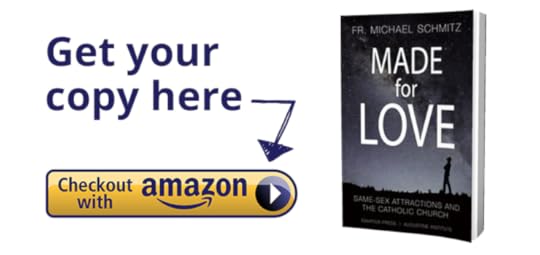Brandon Vogt's Blog, page 2
July 18, 2018
Sex, Science, God, and Atheism: Interview about “Why I Am Catholic”
A couple exciting items about my new book, Why I Am Catholic (And You Should Be Too).
First, the book recently earned a 1st Place Award from the Catholic Press Association for being this year’s best “Popular Presentation of the Catholic Faith.” So exciting!
Second, I was recently interviewed about the book by Angelus News, the newspaper for the Archdiocese of Los Angeles. The reporter sent me several questions via email but, due to space, was only able to quote a few lines for the final piece.
I asked if I could just share the full interview here on my blog, and he said yes. So here you go! Read below for some great discussion about God, atheism, science, sex, the abuse crisis, and more.
QUESTION: Why did you think it was important to write this book, and how has your work as an evangelist shaped the way you wrote it?
BRANDON: The main reason I wrote the book is because I’m convinced the number one problem in the Catholic Church today is the massive amount of young people drifting away. The latest Pew religious landscape survey found that for every one person becoming Catholic, more than six leave. Half of Millennials who were baptized in the Church no longer as identify as Catholic today. These are harrowing stats, but they especially hurt because, as a Millennial convert, I discovered many good reasons to become Catholic, reasons that apparently haven’t reached or convinced my peers. So that’s why I wrote the book: to make a compelling case to young skeptics and former Catholics about why they should consider Catholicism.
My work over the years has definitely shaped the book. For the last five years I’ve run StrangeNotions.com, a site which brings together Catholics and atheists to discuss the Big Questions of life. A lot of those discussions shaped the arguments and approach in my book. I’ve also worked for nearly five years with Bishop Robert Barron, arguably the greatest evangelist in the English-speaking world, and I’ve learned so much from him. His fingerprints are all over the book, too.
QUESTION: In your section about why you believe God exists, you restate a number of classical arguments for God’s existence. I’m curious, one argument (and I’m a believer, by the way) I didn’t quite buy was the moral argument—it seems to me one can make a case for morality based solely on the need for collective safety, i.e., since we’re all living together, it’s a bad idea if any of us murders others. While I personally believe God inspires us to be moral, I also believe morality, aside from God, stands on its own—we all have a vested interest in a civil society. How would you respond?
BRANDON: I’d say this explanation may sound good on the surface, but it falls apart as soon as you press it a little. For example, it presumes that safety (or survival, or maintaining a civil society) is the ultimate ground for morality, that an act is moral because it leads to the greatest amount of happiness or survival for the largest number of people. This is known as utilitarianism, and while it’s popular today, it’s also problematic. The main issue is determining what qualifies as the greatest good. You may choose one variable (e.g., collective safety) and make it the prevailing standard. But what about others who disagree and think, for example, that the greatest good necessitates purging sick people or people they deem racially inferior, since that’s really best for collective society? What objective criteria determines the “greater good”? There doesn’t seem to be any. Thus, this view is ultimately subjective; it trades in opinions and personal beliefs, not objective truth.
Another issue with this utilitarian approach is that it sometimes leads to immoral results. For instance, suppose someone is sick with a contagion. There’s little question that society would be happier and safer if that person was killed. Is it thus OK to murder that sick but innocent person? Most of us would say no. But if that’s the case, there must be some other, more foundational moral framework besides maximizing collective safety or happiness, some moral grounding that affirms an act as wrong, even when it seems to improve collective happiness or safety.
So if we agree, as most people do, that morality must have an objective basis, meaning a standard that transcends mere human preference or personal desire, it can’t come from democratic consensus, biology, or evolution. All of those are contingent or subjective. God seems to be the only fit.
QUESTION: You also seem to allude to the Intelligent Design argument without specifically referencing it, by noting the mathematical elegance of creation, among other aspects. Would you consider yourself a believer in ID or is your view more nuanced than that?
BRANDON: Just to be clear, I don’t endorse Intelligent Design as it’s typically understood, meaning an argument for God based on the irreducible complexity in creation (e.g., the eye is so complex, only God could have designed it.) I don’t find those arguments compelling, and that’s not what I propose in my book.
In Why I Am Catholic, I take a different approach, arguing that the intelligibility of the world (not intelligent design) is a clue that it came from a supreme intelligence. That the world is marked by order, patterns, and rationality is actually surprising. It’s strange and unexpected. Our universe certainly didn’t have to be that way, as scientists have observed. If our universe arose by chance, a disorderedly chaos would have the been far more likely outcome. But the universe we experience is coherent and predictable. We can wrap our minds around larges parts of it. It can be described and mapped through laws and equations. This surprising order, I argue in the book, demands an explanation, and as I suggest in my book, the Christian explanation makes far more sense of it than any alternative.
QUESTION: You readily acknowledge marginalized folks, i.e. gays, have a lot of trouble these days understanding why anyone would want to be Catholic. One thing that has struck me over the years is that it’s easy for married heterosexuals to call others to a life of celibacy, specifically gay people, but I’m curious have you ever explored the idea the church may someday embrace married gay couples? I was a Catholic journalist from 1988 on and have heard many different viewpoints on this issue, so I’m not sure the church will always teach that same-sex individuals must refrain from having sex.
BRANDON: The problem with trying to answer this is that we need to define our terms. What do we mean by “embrace”? If by that we mean the Church welcoming them into her fold, loving same-sex attracted men and women, championing their dignity, and inviting them into a full and flourishing relationship with God, then unequivocally yes: the Church embraces them just as it embraces every human being.
But if by “embrace” we mean endorse or affirm the attempt to marry someone of the same sex, then the answer is certainly no. The Church will never do that. The Catholic Church is convinced, via the teachings of Jesus and the reasoning of natural law, that marriage is an institution which unites men and women to each other and to any children they produce. That’s what marriage is. And that union is sealed by the sexual act. Sex is what completes (or consummates) a marriage, because that very act does what marriage exists to do: it joins the couple in a comprehensive union, one which is open to generating new life.
This why the Church rejects sex outside of marriage, in every case—whether between a heterosexual or homosexual couple—because such acts express with the body something that isn’t really the case, namely that the couple is comprehensively united in a permanent, faithful way.
It’s worth noting that the Church doesn’t specially target same-sex attracted people with this teaching. The Church doesn’t just tell same-sex attracted people not to have sex outside of marriage. It says the same thing to heterosexual people, including priests and religious. So this isn’t an example of bigotry; it’s a coherent teaching, even if admittedly difficult.
One thing that surprised me when I converted to Catholicism, and started reading the Church’s actual teachings on homosexuality (as opposed to swallowing the common distortions) is the remarkable compassion demanded by the Church toward homosexual men and women. Read the Catechism on this: it emphasizes the need to treat same-sex attracted people with tremendous respect and to uphold their dignity. The Church explicitly condemns any unjust discrimination against them, and many Catholic leaders have vigorously followed this call.
Ultimately, I agree with Dr. Peter Kreeft who said the Catholic Church is the best friend of homosexuals. Why? Because the Church is the only institution that refuses to reduce people to their sexual inclinations and maintains their dignity, of inestimable worth, is not derived from their actions, beliefs, or sexual proclivities, but from their being created in the image of God.
QUESTION: I particularly enjoyed your passages about the church and its relation to science—it’s an area as a writer I’d like to explore myself—and was wondering if you got any pushback from the “But what about Galileo?” crowd.
BRANDON: Sometimes, but then I usually ask, “What do you think happened in the Galileo case?” The answer is typically confused. The Galileo case was complicated, as even non-Christian historians have recognized. The Church’s main problem with Galileo wasn’t his scientific theories but with his arrogant insistence that his theories were facts despite the lack of conclusive evidence. It was made worse when Galileo publicly mocked the Pope and chided several other Church leaders. In turn, the Church “imprisoned” Galileo for a period, but the imprisonment was essentially house arrest in an ornate guest house with a dedicated servant—hardly torturous. As noted scientist and philosopher Alfred North Whitehead remarked, “the worst that happened to the man of science was that Galileo suffered an honorable detention and a mild reproof.”
Of course, Galileo’s heliocentric theory was later proven true, and the Catholic Church admitted its leaders were too harsh against Galileo and had acted imprudently. Pope John Paul II publicly apologized for the affair, repudiated it, and the Vatican has even issued two stamps of Galileo as an expression of regret for his mistreatment.
In the end, the Galileo affair doesn’t prove much other than the inevitable drama that arises when an arrogant but brilliant scientist clashes with well-meaning but misguided institutional leaders. But that’s a human problem, not a doctrinal problem. That doesn’t only happen in the Church; it happens in nearly every university.
Certainly, the fact that the Church mistreated a prominent scientist does not justify the assumption that the Church is anti-science, especially in light of the hundreds of equally-bright scientific leaders and founders who were not just religious but ardently so. This includes people like Father Georges Lemaître, formulator of the Big Bang theory; Roger Bacon, the Franciscan friar credited with devising the scientific method; and Father Gregory Mendel, father of modern genetics.
The Church is not anti-science, and we need to emphasize that. It’s been one of the greatest promotors and patrons of science in Western history.
QUESTION: You note, right off the bat, that the sex scandals damaged the church. As a Catholic journalist this has been, by far, the most difficult area for me when discussing the faith with others—for many the very fact they happened discredits the church as a whole. I was wondering if you think it’s possible for the church to reach some people given this scandal. I do find some “traditional” Catholics tend to underplay its damage—I think people who haven’t been sexually abused tend not to think through how difficult it is for someone abused as a youngster to return to a faith that feels part and parcel of their abuse.
BRANDON: Any attempt to downplay the horrific sex abuse crisis is misguided at best. Catholics need to fully face what happened, which includes not only the despicable abuse itself, but the cover up by many priests, bishops, and Church leaders, the very people we’re supposed to trust. I totally understand why, for many people, the abuse crisis has undermined the Church’s credibility and why so many feel unable to rejoin the Church. I get it and it pains me deeply.
But with that said, there seems to be an unfounded leap between the statement “many Catholic leaders contributed to abuse” and “therefore, the Catholic Church has nothing to offer” or “therefore, the Catholic Church is not the Church that Jesus established.” The Church’s credibility is not grounded on the behavior of its members. The important question is not whether its members are angelic, but whether its claims are true. Was the Catholic Church really started by Jesus? Was Jesus really God? Did he really rise from the dead? Do the Church’s sacraments actually do anything? These are the important questions to ask, and these are the ones I deal with in my book.
The post Sex, Science, God, and Atheism: Interview about “Why I Am Catholic” appeared first on Brandon Vogt.





May 14, 2018
5 Reasons to Join Me for the G.K. Chesterton Conference
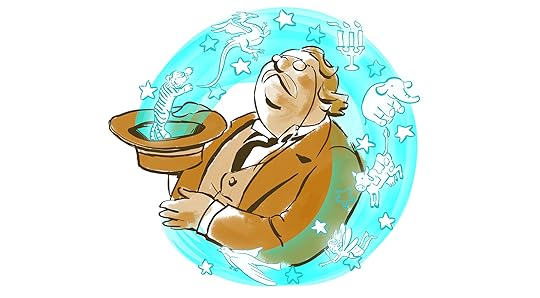
I wanted to tell you about a super fun conference I’m helping to host down here in Orlando this summer….and I really hope you can attend!
It’s the 37th Annual G.K. Chesterton Conference.
The theme is “The Test of the Imagination” and it will take place from August 2-4, 2018 at the DoubleTree Orlando Airport hotel.
https://www.chesterton.org/37th-annual-chesterton-conference/
I’m pretty familiar with Catholic conferences. I travel the country every year, speaking at several and attending many more.
So trust me when I say this: this annual Chesterton conference is the BEST Catholic conference I go to each year.
Whether you’ve never read Chesterton, or love him enough to name your sixth child after him (ahem, ahem….) this conference offers more intellectual stimulation, spiritual edification, and joyful fellowship than any conference around.
It’s my absolute FAVORITE conference of the year… and it’s even better when it’s held in my hometown!
Here are 5 reasons you should come join me and hundreds of others at the conference:
I’ll be there! – I’d love to meet you and hangout, especially if we’ve never met before. I’ll be there for the entire conference and would love to spend time with you.
Amazing talks – Speakers from four continents will give talks on topics such as “Chesterton and Mary Poppins” and “Chesterton and Walt Disney.” Plus I’ll be giving a talk on “Chesterton and the Internet”! So if you’re curious what GKC would think about Facebook, Amazon, comboxes, and more, find out at the conference!
Special C.S. Lewis + J.R.R. Tolkien play – Gifted actors Kevin O’Brien and Dave Treadway will reenact a discussion between Lewis and Tolkien about Chesterton’s Everlasting Man, a book that significantly influenced them both. You don’t want to miss this!
The Afterglows – For many people, this is the best part of the Chesterton conferences. Each evening, after all the talks and panels, we all gather outside for pipes, drinks, cigars, laughs, and tons of good conversations (often around roaring fires.) These evening hangouts are so much fun.
Orlando (enough said!) – Come to the always warm, always fun, tourist capital of the world! You might even consider bringing your family so the trip can double as a family vacation, stopping at Disney and Universal Studios while you’re in town.
Again, I really believe this is the BEST conference of the year, especially if you’re at all a fan of G.K. Chesterton or the writers he inspired, such as C.S. Lewis and J.R.R. Tolkien.
Click here to learn more, including the full schedule and list of speakers:
Hope to see you there!
The post 5 Reasons to Join Me for the G.K. Chesterton Conference appeared first on Brandon Vogt.





May 1, 2018
[VIDEO] How to Have a Family AND Follow Your Passions: An Interview with Jennifer Fulwiler
I’ve known Jen Fulwiler for a long time and have cheered and marveled at her many successes. She’s become a renowned speaker, released a best-selling memoir, launched a national SiriusXM radio show, and despite her self-deprecating Instagram stories, is a flourishing mother of six young kids.
But despite knowing her fairly well I still regularly wonder, how does she do it all? How does she hold her family together while pursuing all these amazing writing projects and media work? What’s her secret?
Most of us struggle to do even half that much. We get locked into our routines and jobs. Both stifle our passions. We assume our deepest yearnings, those things we wish we could devote ourselves to, or the things we feel uniquely designed to do, are in conflict with the demands of everyday responsibilities.
We become convinced life is a zero-sum game. Either we pursue our passions or we serve our family, but something has to give.
That was Jen’s life, too, until she discovered a way to serve her dreams without sacrificing her family life. And that’s what she shares in her new book, One Beautiful Dream: The Rollicking Tale of Family Chaos, Personal Passions, and Saying Yes to Them Both, which just debuted TODAY!
The book is exciting for all sorts of reasons. First, it’s on such a pressing topic. Maybe it’s just me, but I’m noticing more and more friends feeling pressured to snuff our their dreams, to just suppress or ignore them. Yet at the same time, we’re at this pivotal moment where the Internet (especially) has opened up new pathways to these dreams that have never existed, to start your own business, sell your crafts, offer online courses, build community, etc. So how do we bridge that gap? That’s a burning question today, and Jen’s book offers lots of answers.
Second, the book is published by Zondervan and featured in Barnes and Noble stores across the country. Zondervan is one of the largest Protestant publishers in the world and B&N is the largest bookstore chain. So the fact that both have chosen to feature a decidedly Catholic guide to following your passions should be encouraging to Catholics, who usually aren’t well-represented in these spaces.
Third, Jen is such a gifted writer. She’s the best storyteller I know and the book will have you laughing on one page, tearing up on the next, and getting excited throughout as she strings one epiphany after another.
Fourth, the book will help lots of frustrated and defeated people, especially parents. Ostensibly, I think the book is primarily aimed at mothers and wives, but even as a man reading it, I devoured the whole thing in a couple days and learned so much. Jen’s advice helped untangle a few tensions in my own life, showing me how to turn my passion projects into family adventures.
Here’s what I said in my endorsement of the book:
“Marvelous! This book will breathe life into so many hollowed parents who feel stuck between their families and side passions. Most of us wonder, how can we do both? How can we be devoted family people and live out our personal dreams? This refreshing memoir shows the way. It’s not a fluffy, self-help guide. The book is deliciously witty, insightful, absorbing, and offers one motivational epiphany after another, each punching a hole in the Resistance blocking us from our dreams. If every parent read this, families would become dream incubators, not where passions go dormant.”
I really believe that. This book is a spark that can transform many families into “dream incubators.” That’s reason enough to pick up the book.
Today, on the book’s big launch day, Jen sat down with me to discuss some of its main ideas. Enjoy the interview!
.embed-container { position: relative; padding-bottom: 56.25%; height: 0; overflow: hidden; max-width: 100%; } .embed-container iframe, .embed-container object, .embed-container embed { position: absolute; top: 0; left: 0; width: 100%; height: 100%; }
Topics Include:
0:06 – Introduction and Jen’s bio
1:39 – Why this book? Why is it needed?
3:47 – Jen’s plans and vision of the “good life” as a young atheist
5:53 – How getting pregnant altered Jen’s life goals
8:36 – Finding your “blue flame” and why it’s so important
11:36 – How we find our “blue flame”
13:46 – Jen’s secret to following her passions
17:31 – How Jen learned to accept help instead of resent it
21:02 – How Jen’s book will help mothers and fathers
Links
One Beautiful Dream book page
JenniferFulwiler.com
The Jennifer Fulwiler Show
One Beautiful Dream: The Rollicking Tale of Family Chaos, Personal Passions, and Saying Yes to Them Both
by Jennifer Fulwiler
Zondervan, 240 pages, hardcover
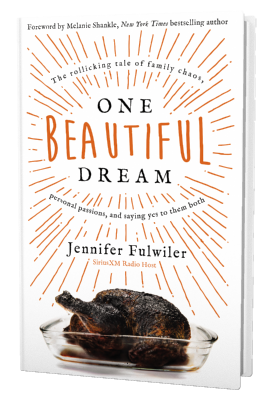 Work and family, individuality and motherhood, the creative life and family life—women are told constantly that they can’t have it all. One Beautiful Dream is the deeply personal, often humorous tale of what happened when one woman dared to believe that you can have it all—if you’re willing to reimagine what having it all looks like.
Work and family, individuality and motherhood, the creative life and family life—women are told constantly that they can’t have it all. One Beautiful Dream is the deeply personal, often humorous tale of what happened when one woman dared to believe that you can have it all—if you’re willing to reimagine what having it all looks like.
Jennifer Fulwiler is the last person you might expect to be the mother of six young children. First of all, she’s an introvert only child, self-described workaholic, and former atheist who never intended to have a family. Oh, and Jennifer has a blood-clotting disorder exacerbated by pregnancy that has threatened her life on more than one occasion.
One Beautiful Dream is the story of what happens when one woman embarks on the wild experiment of chasing her dreams with multiple kids in diapers. It’s the tale of learning that opening your life to others means that everything will get noisy and chaotic, but that it is in this mess that you’ll find real joy.
Jennifer’s quest takes her in search of wisdom from a cast of colorful characters, including her Ivy-League-educated husband, her Texan mother-in-law who crushes wasps with her fist while arguing with wrong number calls about politics, and a best friend who’s never afraid to tell it like it is. Through it all, Jennifer moves toward the realization that the life you need is not the life you would have originally chosen for yourself. And maybe, just maybe, it’s better that way.
Hilarious, highly relatable, and brutally honest, Jennifer’s story will spark clarity and comfort to your own tug-of-war between all that is good and beautiful about family life and the incredible sacrifice it entails. Parenthood, personal ambitions, family planning, and faith—it’s complicated. Let this book be your invitation to the unexpected, yet beautiful dream of saying yes to them all, with God’s help.
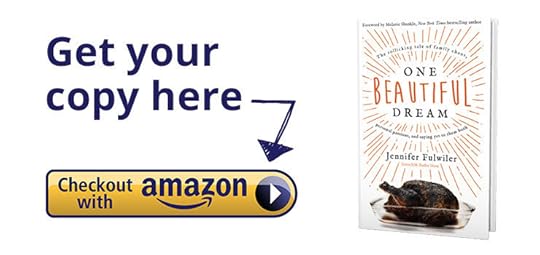
The post [VIDEO] How to Have a Family AND Follow Your Passions: An Interview with Jennifer Fulwiler appeared first on Brandon Vogt.





April 26, 2018
What is the Biggest Roadblock to the Faith? – An Interview with Karlo Broussard
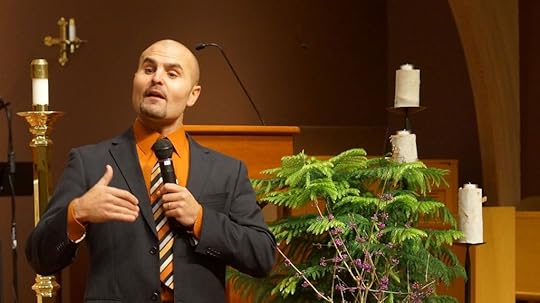
Why does it seem like so many people reject Christianity? What’s holding them back? Even when we make a strong case for God, many people just shrug their shoulders and walk away.
Those are the questions Karlo Broussard answers in his new book, Prepare the Way: Overcoming Obstacles to God, the Gospel, and the Church.
Karlo affirms that it’s not enough just to have good arguments for Christianity. Most of us know from experience that we can share the best argument with skeptical friends or family, even with great precision, and it nevertheless falls flat. We’ve all been there.
But why? They were unprepared to receive it. Something blocked the reception. To make headway, we first need to clear away any barriers on the path.
Karlo is a master at this—one of the best I’ve ever seen. I’ve watched for years, with great admiration, as he talks with radio callers or commenters and calmly helps them overcome these preliminary hazards so that, to switch metaphors, he can clear a runaway for his arguments to land.
If you’re interested in sharing your faith, this is one of the most important strategies you could learn, and this book will show you how.
Today I sit down with Karlo to learn about his new book. Enjoy!
BRANDON VOGT: Who is this book for, and what will the reader walk away with?
KARLO BROUSSARD: The book is primarily for Catholics who are looking for ways to answer those common objections that unbelievers and skeptics have to truth, God, Jesus, Christianity, and the Church. However, Christians of all denominations can benefit from the sections on truth, God, Jesus, and Christianity, since these topics transcend denominational boundaries.
Ultimately, my hope is that the reader will walk away from reading the book with a greater confidence in knowing that there are effective ways to address the concerns of unbelievers and skeptics, and to feel equipped to engage them in dialogue and prepare a way for the Lord.
BRANDON VOGT: What are the three most common roadblocks you see in people when it comes to acceptance of Catholic teaching?
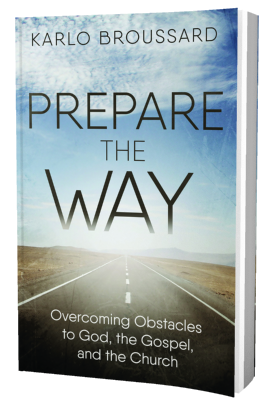 KARLO BROUSSARD: Well, if we’re talking about Protestants, the answer would be the Catholic teaching on Mary. But since the book is directed toward the concerns of unbelievers, I’d have to say the problem of evil is the greatest roadblock. “How can I believe in a God who is all-good and all-loving,” they say, “when he allows so much sin and suffering in the world?” That’s why I devote three chapters to this one topic.
KARLO BROUSSARD: Well, if we’re talking about Protestants, the answer would be the Catholic teaching on Mary. But since the book is directed toward the concerns of unbelievers, I’d have to say the problem of evil is the greatest roadblock. “How can I believe in a God who is all-good and all-loving,” they say, “when he allows so much sin and suffering in the world?” That’s why I devote three chapters to this one topic.
Related to the problem of evil are the problems of divine hiddenness and the doctrine of hell. Concerning the problem of divine hiddenness, unbelievers argue that if God exists, and he desires a relationship with us, then he would ensure that every honest atheist knows that he exists. Since he doesn’t do this, they argue, he must not exist.
The doctrine of hell serves as an obstacle because many unbelievers can’t reconcile it with an all-good and all-loving God. They assume that hell is some arbitrary torture chamber to which God sends people on a whim for petty crimes.
Finally, I’d have to say a third major roadblock are the Church’s moral teachings, particularly its teachings on abortion and same-sex sexual activity. Many perceive the Church’s teaching on these issues as oppressive of women and those who have same-sex attraction.
But, as I show in my book, nothing could be further from the truth. The Church’s opposition to abortion is due to its stand for protecting all innocent life, which includes not only the unborn but also women.
The Church’s condemnation of same-sex sexual activity in no way oppresses those who experience same-sex attraction. The Church says no to same-sex sexual activity because it says yes to human happiness, which same-sex sexual activity militates against. As to how we are to prepare that way, I spell it out in my book.
I guess that’s more than three.
BRANDON VOGT: When it comes to types of objections to the Faith, which do you think are most common—intellectual, personal, moral, or emotional, and why?
KARLO BROUSSARD: It really depends on whom you’re talking too. Among the intelligentsia, it’s intellectual. For the average Joe on the street, it’s more emotional.
Intellectuals tend to look at everything as a puzzle to be solved. As such, their obstacles are going to be intellectual in nature.
For example, the problem of evil for such folks is a matter of trying to figure out how to reconcile the existence of an all-good and all-loving God with sin and suffering in the world. When it comes to sexual ethics, they may argue with sophistication that same-sex sexual activity is just as much an expression of love as sexual activity between members of the opposite sex.
By contrast, when the average Joe on the street is faced with the evils of the world, he simply wants help to deal with them in a way that keeps him from despairing. He just wants the pain to go away, or at least to figure out how to deal with it.
Concerning the Church’s teaching on human sexuality, the average Joe’s negative response is normally based on emotion. He doesn’t think through the reasons why the Church opposes certain sexual behaviors. Consequently, he sees the Church’s opposition as oppressive and discriminatory.
We encounter both types of audience in our evangelistic endeavors. This is why in my book I provide strategies that deal with both intellectual and emotional obstacles.
BRANDON VOGT: It seems a lot of people think of faith as a panacea—that once they accept Christ, everything will be all right in their lives. Has that been your experience, and how close to the authentic Christian life is that perception?
KARLO BROUSSARD: If the question is, “Does Christian faith transform one’s experience of life for the better?”, then the answer is yes. I actually address this question in my chapter on removing the obstacle of hypocrites among Christians.
But if the question is, “Does Christian faith make all problems and suffering go away?”, then the answer is no. This brings us right back to the mystery of God’s permission of evil in our lives.
But as I point out in my book, particularly in the chapter on suffering, God provides us a means by which we can transform our suffering into acts of love for God and neighbor, thereby giving us a means by which we can attain our final salvation.
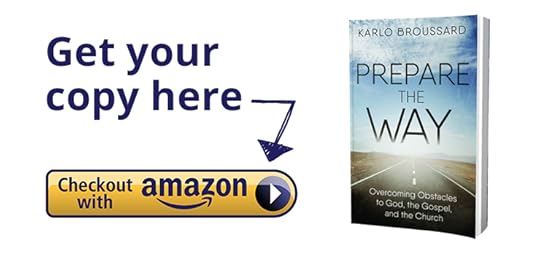
The post What is the Biggest Roadblock to the Faith? – An Interview with Karlo Broussard appeared first on Brandon Vogt.





April 4, 2018
[VIDEO] The Angry Christian: An Interview with Bert Ghezzi
Is anger always bad, or can it be good? How should Christians handle it? That’s what Dr. Bert Ghezzi addresses in his new book, The Angry Christian: A Bible-based Strategy to Care for and Discipline a Valuable Emotion (Paraclete Press, 2018).
It’s an updated version of Bert’s mega-bestselling classic by the same name, which has sold 60,000 copies over the years. But the book couldn’t be more relevant and necessary today, in a culture simmering with anger. From politics to Facebook, families to the Church, we’re all upset about something. Yet this book teaches you the right way to conquer those feelings, and then how to channel them for good.
Bert is one of my closest friends and I was honored to write the foreword to this new edition. We recently sat down to discuss the book. Enjoy the interview!
.embed-container { position: relative; padding-bottom: 56.25%; height: 0; overflow: hidden; max-width: 100%; } .embed-container iframe, .embed-container object, .embed-container embed { position: absolute; top: 0; left: 0; width: 100%; height: 100%; }
Topics Include:
2:40 – Why this book is so needed today
3:31 – How anger can, in fact, be a gift
4:16 – Why suppressing your anger makes things worse
5:34 – How to distinguish between good and bad anger
7:05 – Getting control of your anger
9:34 – The biblical approach to anger
12:03 – How anger can make us holy
13:47 – How anger fuels social justice and evangelization
#:## – Bert’s embarrassing story about anger
Book Description – The Angry Christian
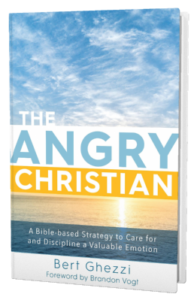 This book shows how Christians can be good and be angry at the same time. That’s possible if we let the Holy Spirit strengthen us to get angry for the right reasons and to keep anger under control.
This book shows how Christians can be good and be angry at the same time. That’s possible if we let the Holy Spirit strengthen us to get angry for the right reasons and to keep anger under control.
If we are seeking a secret that will simply eliminate anger, we’re pursuing a vain hope. Anger will surely be with us until we die. It may even go with us to heaven, where the Lord may allow us to share his anger at the evils that afflict his creation. But we can learn to increase good anger and to minimize the bad. That’s the Christian approach summed up by Paul when he admonished the Ephesians to “Be angry, but do not sin” (Eph 4:26). If used constructively, anger can even help us live a more Christian life.
This is not a psychology or self-help book. It presents a Bible-based strategy for caring for and disciplining a valuable emotion. It describes a method that helps us use anger successfully to overcome the obstacles strewn across the path of our Christian journey. The book contains questions for discussion, personal reflection and application which make it ideal for either individual or group use.
.embed-container { position: relative; padding-bottom: 56.25%; height: 0; overflow: hidden; max-width: 100%; } .embed-container iframe, .embed-container object, .embed-container embed { position: absolute; top: 0; left: 0; width: 100%; height: 100%; }
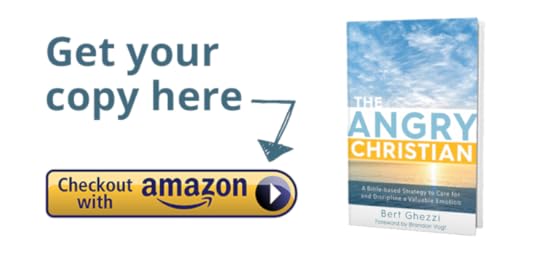
The post [VIDEO] The Angry Christian: An Interview with Bert Ghezzi appeared first on Brandon Vogt.





February 20, 2018
Dr. Peter Kreeft: 26 Books Nobody Should Die Without Reading
Did you catch this wonderful lecture by Dr. Peter Kreeft??
For his assigned topic, Dr. Kreeft was supposed to recommend ten books to read before you die. But he couldn’t help himself. He instead proposed 26 books, stretched over 13 genres, with another 15 bonus titles.
You’ll find links to all the books below the lecture.
(Also, click here for Peter Kreeft’s recommended philosophy books.)
.embed-container { position: relative; padding-bottom: 56.25%; height: 0; overflow: hidden; max-width: 100%; } .embed-container iframe, .embed-container object, .embed-container embed { position: absolute; top: 0; left: 0; width: 100%; height: 100%; }
Book Recommendations
Autobiography
The Confessions by St. Augustine (Frank Sheed translation)
A Severe Mercy by Sheldon Vanauken
Novels
The Brothers Karamazov by Fyodor Dostoevsky
Till We Have Faces: A Myth Retold by C.S. Lewis
Plays
A Man for All Seasons by Robert Bolt
Our Town by Thornton Wilder
Epics
The Lord of the Rings by J.R.R. Tolkien
The Chronicles of Narnia by C.S. Lewis
Supernatural Fantasy
The Great Divorce by C.S. Lewis
The Screwtape Letters by C.S. Lewis
Science Fiction
A Canticle for Leibowitz by Walter M. Miller, Jr.
Brave New World by Aldous Huxley
Spirituality
The Practice of the Presence of God by Brother Lawrence
The Story of a Soul by St. Therese of Lisieux
Apologetics
Pensées by Blaise Pascal
The Problem of Pain by C.S. Lewis
Classic Philosophy
Apology of Socrates by Plato
The Consolation of Philosophy by Boethius
Popular Philosophy
St. Thomas Aquinas by G.K. Chesterton
Orthodoxy by G.K. Chesterton
History
The Everlasting Man by G.K. Chesterton
Our Lady of Guadalupe and the Conquest of Darkness by Warren Carroll
Theology
Mere Christianity by C.S. Lewis
Summa Theologiae by St. Thomas Aquinas
Poetry
Lepanto by G.K. Chesterton
The Waste Land by T.S. Elliot
Bonus Book Recommendations
Autobiography
The Seven Storey Mountain by Thomas Merton
Surprised by Joy by C.S. Lewis
Novels
A Tale of Two Cities by Charles Dickens
Plays
Hamlet by William Shakespeare
Epics
The Silmarillion by J.R.R. Tolkien
Supernatural Fantasy
Descent Into Hell by Charles Williams
Science Fiction
The Martian Chronicles by Ray Bradbury
Spirituality
Abandonment to Divine Providence by Jean-Pierre de Caussade
Apologetics
Miracles by C.S. Lewis
Classic Philosophy
Republic by Plato
Popular Philosophy
Ethics by Aristotle
History
City of God by St. Augustine
The Formation of Christendom by Christopher Dawson
The Dividing of Christendom by Christopher Dawson
Theology
Theology of the Body for Beginners by Christopher West
Poetry
The Dream of Gerontius by John Henry Newman
Which of these have you read? Comment below!
The post Dr. Peter Kreeft: 26 Books Nobody Should Die Without Reading appeared first on Brandon Vogt.





January 31, 2018
Only 7% of your parish is engaged. Here’s how to fix that…
It’s the #1 question most parishes wonder about:
How do we engage our inactive parishioners??
It’s such a big problem. I’m sure you know it.
Studies show that only about 25% of Catholics attend Mass each Sunday.
And only about 7% are actively engaged throughout the week, meaning they show up for parish events, study their faith, join small groups, etc.
Think about your own parish: it’s likely the same 7% of people show up for Mass, serve in the ministries, and participate in the events.
But what about the other 93%? How do we reach THEM?
How do we engage people who are too busy to show up, or simply uninterested? How do we form and evangelize THEM?
It’s a difficult problem and we’ve been working on it for several months at Word on Fire, under the direction of Bishop Robert Barron.
And after tons of research and development, I’m excited to share our new solution:
It’s called Word on Fire ENGAGE.
This innovative new tool JUST launched today, and I think you’ll love it.
It’s a creative way to engage parishioners who aren’t involved, aren’t plugged in, and don’t know much about their faith.
How does it work??
Just watch this video to find out:
.embed-container { position: relative; padding-bottom: 56.25%; height: 0; overflow: hidden; max-width: 100%; } .embed-container iframe, .embed-container object, .embed-container embed { position: absolute; top: 0; left: 0; width: 100%; height: 100%; }
I’ve been personally working on this tool for several months, and I’m 100% confident it will help ANY parish.
There’s nothing like it! It’s simple, it’s powerful, and it works.
So if you want to help YOUR parish start engaging more than the typical 7% of parishioners, check it out today:
Learn more >> http://bvogt.us/wof-engage
PS. Please SHARE this with your pastor, priest, or parish staff, so they can get your parish on board!
PPS. You’ll want to get your parish signed up NOW for two reasons. First, Word on Fire ENGAGE is 100% free during Lent. That alone is worth trying it out. Second, we put together a free Lenten mini-course for you, complete with five short emails/texts and videos from Bishop Barron. You just click one button to schedule and send to your parishioners! It’s a great way to start engaging your parish during Lent–including those who won’t show up for anything else.
The post Only 7% of your parish is engaged. Here’s how to fix that… appeared first on Brandon Vogt.





January 29, 2018
[VIDEO] Love, Same-Sex Attraction, and the Catholic Church: An Interview with Fr. Mike Schmitz
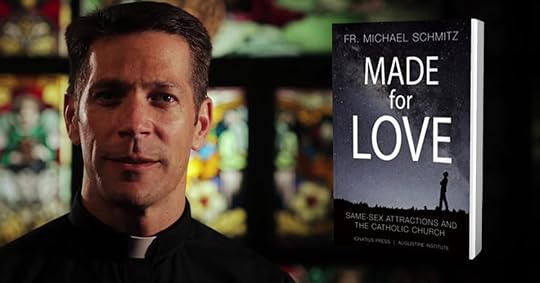
Today I’m excited to interview Fr. Mike Schmitz, one of today’s most popular and effective evangelists, especially among young people. He’s the Director of Youth and Young Adult Ministry for the Diocese of Duluth, MN. He also serves as the chaplain for the Newman Catholic Campus Ministry at the University of Minnesota-Duluth.
He’s a popular speaker at Catholic conferences and you probably know him from his Ascension Presents videos or his many talks and CDs.
He just released a new book, titled Made for Love: Same-Sex Attraction and the Catholic Church, released through Ignatius Press and the Augustine Institute.
.embed-container { position: relative; padding-bottom: 56.25%; height: 0; overflow: hidden; max-width: 100%; } .embed-container iframe, .embed-container object, .embed-container embed { position: absolute; top: 0; left: 0; width: 100%; height: 100%; }
Topics Include:
1:38 – Why did you write this book? Why this subject?
5:14 – How same-sex attraction can become an evangelical obstacle
8:27 – Why is the question “what are you going to do now?” so important for same-sex attracted Catholics
12:03 – How should we respond to accusations that the Church hates gay people or wishes they didn’t exist?
17:14 – What do you say to a loved one who comes out as gay or lesbian?
21:52 – How to respond when someone claims you have to accept their homosexual identity or else you don’t love them
25:42 – Separating our attractions from our identity
28:16 – Didn’t Pope Francis say “who am I to judge?” and didn’t Jesus say not to judge?
31:07 – If you have 2-3 minutes to talk with a same-sex attracted person, what should you say?
Be sure to pick up your copy of Made for Love: Same-Sex Attraction and the Catholic Church!
The post [VIDEO] Love, Same-Sex Attraction, and the Catholic Church: An Interview with Fr. Mike Schmitz appeared first on Brandon Vogt.





January 25, 2018
Want to Help G.K. Chesterton Become a Saint? Here’s How…
[TL;DR: Help collect and digitize all of G.K. Chesterton’s writings. Play a key role in Chesterton’s cause for sainthood. Click here to help!]
A couple years ago I attended the 2016 G.K. Chesterton Conference in Slippery Rock, Pennsylvania. It was such a blast. I joined over 300 fellow Chestertonians to celebrate GKC’s wit and prophetic witness.
(And psssttt…guess what? The 2018 Chesterton Conference will be here in Orlando! I’ll be there and would LOVE to see you, too!)
Anyways, I had lots of fun at the conference, but one conversation stood out. Nancy Carpentier Brown, who has authored several books about Chesterton including a magnificent biography of his wife, Frances, revealed to me an incredible project she’s been quietly helping with, behind the scenes among Chesterton fans.
It’s called the Chesterton Digital Library.
The goal? To digitize all of Chesterton’s prolific writings and put them online so anyone can access them. Many of his works are already available through public domain sites, including his novels and major essay collections, but these are only the tip of his massive literary iceberg. The books account for less than 20% of everything he wrote. In fact, we’re still discovering new essays!
Thus the Chesterton Digital Library was born. The group hopes to collect all of his extant writings and share them online with the world.
To do this, they’ve gathered a small team of intrepid volunteers who visit obscure libraries and archives, tracking down long-forgotten Chesterton essays, stories, poems, and book reviews. Many of these haven’t been seen for decades. They scan or photograph the texts, then pass the images to another small team of transcribers who carefully type out each page.
(On a side note, Nancy invited me to join the transcribing team and I’ve already tapped out a few essays myself. It’s a strange thrill to type out the very same words that Chesterton once dictated or put to paper. It’s as if you’re channeling his own creative spirit!)
The Chesterton Digital Library has already made great progress. So far, the team has formatted text files for 5,771 (87%) of the estimated 6,600 unique works authored by G.K. Chesterton, and they’re on pace to have almost all his works finished soon.
Obviously, the big victory is this will make Chesterton’s works more accessible than ever before. Anyone will soon be able to browse all of his writings online, in a searchable database, free of charge.
But there’s another reason this project is so exciting and important:
It will help Chesterton’s cause for sainthood!
You may have heard that back in 2013, the Diocese of Northampton in England took the first steps toward opening the cause of G.K. Chesterton. But in order for the cause to progress (i.e., in order for the Church to recognize him as a saint), the Vatican requires a thorough review of all his published work…which requires that someone first collect all that work!
For less prolific saints, such as Louis and Zélie Martin, who Pope Francis recently canonized, that task is pretty simple—they didn’t write much. But for a saint like G.K. Chesterton, who published a mind-bending 15 million words in his lifetime, it’s a bit more difficult.
(Do the math: if the average book is 250 pages at 200 words/page, then 15 million words is equivalent to 300 full-length books!)
And that’s why we need your help.
So far the Chesterton Digital Library has operated on a shoestring budget, mostly with volunteers and a few minor donations.
A group of web designers, developers, and database specialists have been donating their valuable time to help create the website and database.
But to bring this project to completion, to actually get it online, we need your help. And frankly, that means we need some money.
Dale Ahlquist, president of the American Chesterton Society, explains:
.embed-container { position: relative; padding-bottom: 56.25%; height: 0; overflow: hidden; max-width: 100%; } .embed-container iframe, .embed-container object, .embed-container embed { position: absolute; top: 0; left: 0; width: 100%; height: 100%; }
Click here to donate + help G.K. Chesterton become saint!
Frequently Asked Questions
Why do we need the Chesterton Digital Library (CDL)?
Because our insane world demands an apostle of sanity…and that’s G.K. Chesterton 
January 2, 2018
Learning from a Mystic Devoted to Pastoral Service

Today we continue our regular series called “Learning from the Saints.” Our guide is expert Bert Ghezzi, a dear friend of mine and the author of numerous books including Voices of the Saints, Saints at Heart, and Discover Christ: Developing a Personal Relationship with Jesus.
His more recent books are The Power of Daily Mass and The Heart of Catholicism. You can learn more about Bert and his work at BertGhezzi.com.
Today, Bert profiles St. Gregory Nazianzen, whose feast day is today. He was a fourth-century archbishop and theologian, and he is widely considered the most accomplished rhetorical stylist of the patristic age.
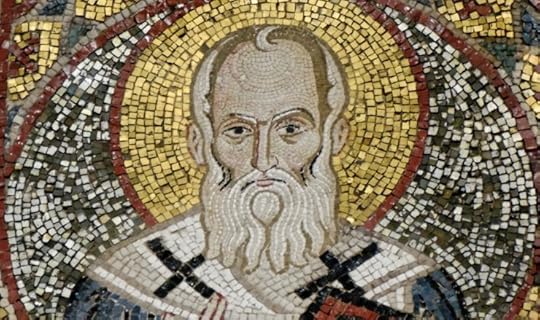
As a young man at school in Athens, St. Gregory Nazianzen became best friends with *St. Basil, his polar opposite. Basil was the practical activist and Gregory the intellectual mystic. They complemented each other, and together their works influenced the shape of Christian spirituality for many centuries.
Gregory’s life theme was the union with God that Christ had come to bestow on human beings. In the following sermon excerpt, he celebrates baptism, the sacrament through which Christ dispenses that incomparable gift of divine illumination.
“Illumination is the splendor of souls, the conversion of life, the aid to our weakness, the renunciation of the flesh, the following of the Spirit, the fellowship of the Word, the improvement of the creature, the overwhelming of sin, the participation of light, the dissolution of darkness. It is the carriage to God, the dying with Christ, the perfecting of the mind, the bulwark of faith, the key of the kingdom of heaven, the transformation of life, the removal of slavery, the loosing of chains, the remodeling of the whole person.
“Why should I go into further detail? Illumination is the greatest and most magnificent of the gifts of God.
“And as Christ the Giver is called by many various names, so too is this gift. We call it the gift, the grace, baptism, anointing, illumination, the clothing of immortality, the bath of regeneration, the seal and everything that is honorable.
“We call it the gift because it is given to us in return for nothing on our part. Grace because it is conferred even on debtors. Baptism because sin is buried with it in the water. Anointing as priests and kings for such were they who were signed with oil. Illumination because of its brilliance. Clothing because it hides our shame. The bath because it washes us. The seal because it preserves us and is moreover the indication of lordship. The heavens rejoice in the gift. The angels glorify it because of its kindred splendor. The gift is the image of the heavenly bliss. We long to sing out its praises, but we cannot worthily do so.”
Gregory Nazianzen should be named patron saint of all who want one thing and have to settle for another. All his life Gregory longed for the solitude where he could simply rest in God. Instead circumstances constantly dragged him into the public arena where he had to use his considerable gifts to serve God’s people. At 30 he wanted to retire as a monk with Basil at Pontus. But he was ordained over his protests and for fifteen years reluctantly served as coadjutor to his father, who was the bishop of Nazianzus.
In 380 several bishops persuaded Gregory to come to Constantinople to help turn the tide against Arianism. He turned his house into a church named Anastasis, denoting a place where the true faith would revive. There he preached his celebrated sermons in which he defined the characteristics of the Trinity. With his friend St. Gregory of Nyssa, in 381 he presided over the Council of Constantinople that put the nails in Arianism’s coffin.
Worn down by stress and controversy, in 384 Gregory retired to his estates at Nazianzus. He finally enjoyed a few years of solitude there before he died in 390.
“Be purified that you may be like lights in the world, a quickening force to all others. May you stand as perfect lights beside that great Light. And may you learn the mystery of the illumination of heaven, enlightened by the Trinity more purely and clearly.”
— St. Gregory Nazianzen
Read more from Bert at his website www.BertGhezzi.com, or check out his many books on Amazon.
The post Learning from a Mystic Devoted to Pastoral Service appeared first on Brandon Vogt.





Brandon Vogt's Blog
- Brandon Vogt's profile
- 75 followers





